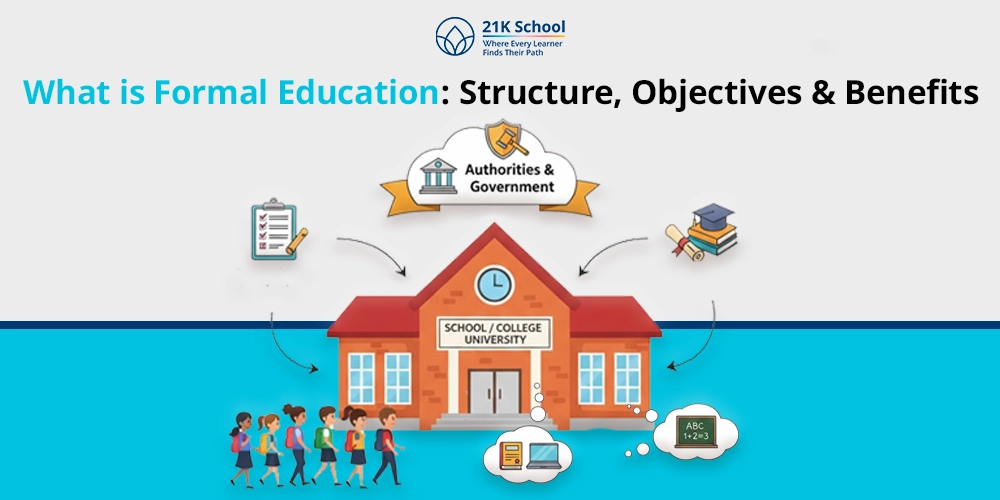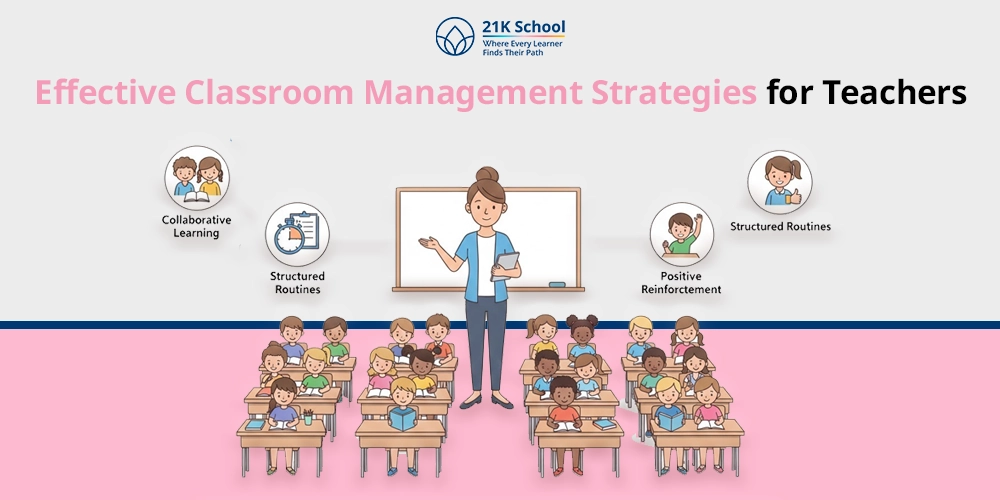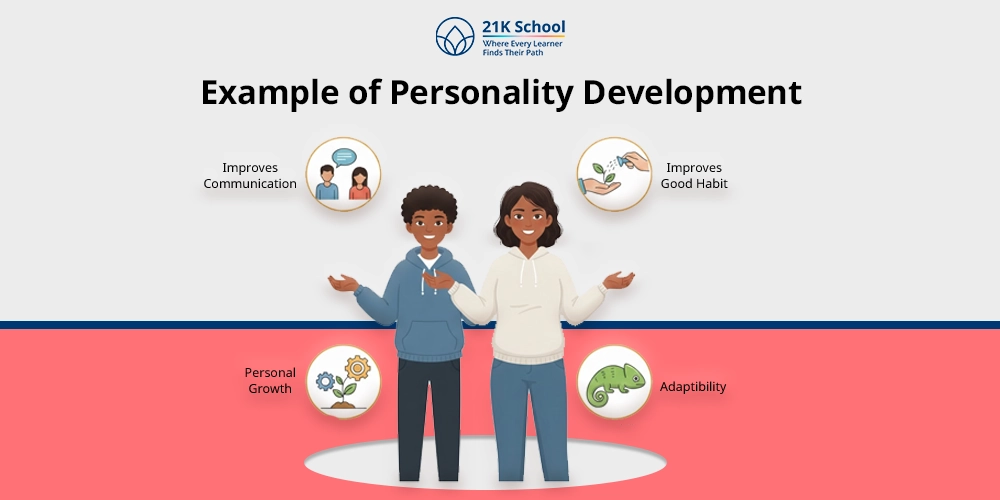
In today’s fast-paced world, distractions are everywhere, making it increasingly challenging for students to focus on their studies. Digital interruptions, social commitments, and personal responsibilities often create a struggle to balance academics and personal life.
However, the ability to concentrate is not a talent, rather it is a skill that is developed over time and can be improved when implemented with the right strategies.
Here in this article, we will explore practical tips to schedule a day and implement techniques to help students improve their focus and avoid distractions in their everyday lives.
Contents
How to Concentrate on Studies: 7 Tips
1. Create a Distraction-Free Environment
Students need to sit in a conducive study environment for the learning journey to maintain focus and create a surrounding that contributes to their ability to concentrate.
Certain things that students can keep in mind while choosing an environment for the study include:
Choosing the right spot is suggested for students to pick a quite well-lit location where they can study without any interruption.
It is ideal for them to use a desk or table to avoid studying in bed as it can lead to drowsiness distracting them from learning and making them feel lazy.
For a conducive environment, students need to organise their learning space by creating a clutter-free desk as it can reduce distraction in their mind.
Keeping only essentials around like books, notebooks, stationery and water bottles on your study table helps you maintain focus and leads to a productive study session.
Eliminate noise, students need to avoid any external noise that comes near their learning spot. They can also consider noise-cancelling headphones or white noise apps to create an atmosphere ideal for studying.
To maintain a learning schedule students can inform others about their planning and let their family or roommates know that they are studying to minimise introduction by clearly putting a do not disturb sign or putting their phone on silent for the time being.
Here’s a blog on How to Make A Child Study Independently at Home.
2. Set Study Goals
Clear and achievable goals are essential for staying on track and maintaining motivation. Here’s how to set effective study goals:
- Break down the syllabus into smaller, manageable tasks
- Set realistic, achievable objectives.
- Create a checklist and track progress regularly.
- Evaluate and adjust your plan as needed
Students need to understand that learning is a journey that cannot be achieved in one day therefore it is very crucial to divide the study material into smaller manageable tasks where setting a specific goal makes it easier for them to achieve it.
With better time management students can align that time and energy reducing the burnout and frustration that can be caused by unrealistic educational expectations.
As students list their goals and evaluate their progress it gives them a sense of responsibility and accomplishment to keep them motivated this also helps them in adjusting their plans as per the requirement.
3. Follow a Study Schedule
Consistency is the key to success when it comes to maintaining concentration and creating an environment where students can study.
To have a proper study schedule it is very important to establish a routine which helps them stay ahead of their plan with dedicated time slots for specific tasks for each day including breaks, meals, leisure, and helps them maintain a balanced and sustainable schedule.
It is suggested that students study at peak hours identifying the time when they are most alert and productive.
It can vary for each student for some it can be early morning or afternoon or even late at night. This helps them schedule the task in a way that the most challenging task comes during these times balancing the fallbacks and maintaining the flow of learning.
Students can allocate more time to subjects and topics that day find difficult and prioritise them. Assigns separate time to the subjects and dedicates less time to the ones they’re comfortable with.
Learners should stay flexible. They should adjust their schedule as needed to accommodate unforeseen circumstances while maintaining a structured routine
For homeschooling students here is a blog that will help them create a conducive environment for a seamless learning experience and journey: Tips for Creating a Homeschooling Schedule
4. Practice the Pomodoro Technique
The Pomodoro technique is a famous time management method that helps students maintain focus and prevent burnouts and their life when maintaining the schedule.
As per the technique, it is suggested that by working in short and focused intervals students can maintain their high level of concentration and productivity for a longer time
Here’s, how It Works:
- Choose a task you want to work on.
- Set a timer for 25 minutes and focus solely on the task.
- When the timer rings, take a 5-minute break.
- Repeat the process 4 times, then take a longer 15-30 minute break.
Benefits of the Pomodoro Technique:
- The Pomodoro Technique helps students keep their minds fresh and focused.
- Helps students overcome procrastination by breaking tasks into smaller chunks.
- Creates a sense of urgency, encouraging them to stay on task.
5. Take Regular Breaks
For students, it might seem counterintuitive to take breaks but it is very essential to maintain focus and prevent mental fatigue in the long run.
The brain can only focus on certain things for a limited amount of time before it needs rest. Providing shorter breaks to the mind can help in recharging it and improve long-term memory retention power contributing to all cognitive development and mental activity.
When taking a break it is important to utilise it to relax and refresh.
Some of the major activities that can be done during breaks are stretching, taking short walks, doing breathing exercises or grabbing a healthy snack.
Scrolling through mobile phones and social media can break the focus and decrease the attention span of students making their breaks more brain teasing and students will lose time as they get involved in this without gaining any focus for the next session.
It is also important for students to plan their breaks based on their study sessions. For example, if they have studied for 50 minutes it is suggested that they take a 10-minute break to recharge themselves.
6. Stay Physically Active and Eat Healthy
Your physical health directly impacts your ability to concentrate and to perform well academically, students must be physically active and eat healthy food.
Students can exercise regularly as physical activity increases the blood flow to their brain which helps in enhancing memory power and focus.
A dedicated 20 to 30 minutes of daily exercise such as walking, jogging or yoga can make a significant difference in the students’ lives by making them feel more positive about themselves and their learning journey.
To maintain a healthy lifestyle students should also consume some brain-boosting foods as a healthy diet fuels your mind and body some of the foods that students can include in the meals are:
- Nuts and seeds (rich in omega-3)
- Fruits like blueberries and bananas
- Leafy greens and vegetables
- Whole grains
- Eggs and fish
It is suggested for students to stay hydrated as dehydration can lead to fatigue and reduced concentration. Students can aim to drink at least 6 to 8 glasses of water every day.
To preserve their body and improve mental clarity students can avoid junk food as sugary and processed food also causes energy crashing reducing their focus and productivity.
7. Minimize Digital Distractions
For students, it is very important to minimise the digital distraction as in today’s world it is very challenging to stay away from social media everyday advancements that are happening in technology.
To maintain an uninterrupted study session and minimise digital distractions a student can :
- Turn off phone notifications or set your phone to “Do Not Disturb” mode.
- Limit social media usage by allocating specific times to check your accounts.
- Use focus-enhancing apps like Freedom or StayFocusd to monitor and limit screen time.
- Keep unnecessary devices out of reach to avoid temptation.
Conclusion
Concentrating on studies is a skill that requires practice, consistency, and the right strategies.
By creating a destruction free environment and setting clear goals for their study schedule students can significantly improve their focus and productivity in life.
There are certain techniques that also they can use like the Pomodoro technique.
It is suggested for students to maintain their physical and mental health along with other activities that they take part in.
Students are suggested to stay away from digital distractions which is rewarding and makes an individual feel the achievement and celebrate them, it is an essential skill for success.
Struggles are a part of life, and students may find it difficult to focus at times. However, with the right mindset and strategies, they can overcome distractions and achieve excellence.



